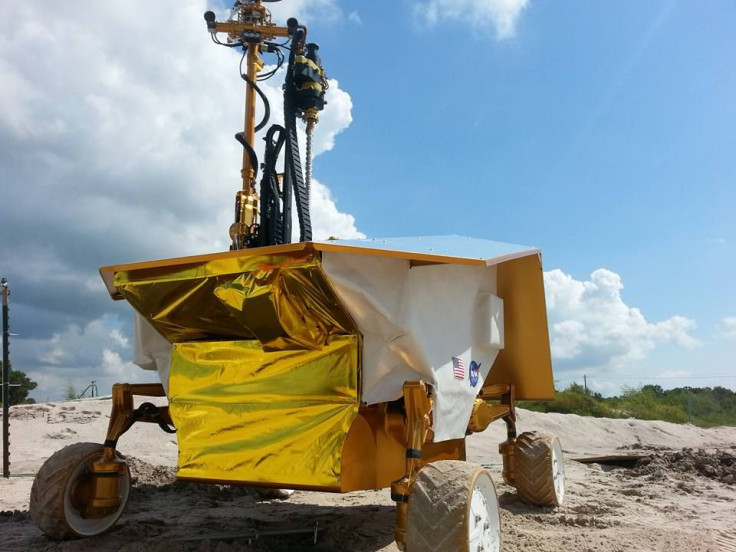NASA Is Building Water-Searching Moon Rover

President Donald Trump and his National Space Council headed by Vice President Mike Pence revealed this year that before NASA sends anyone to Mars, the plan is to send humans back to the moon first.
The moon, a possible gateway to deep space, is an old destination but one that even NASA sees viability in. The agency has even been working on a rover to detect possible water or energy resources that might be on Earth's neighbor, The Houston Chronicle reported.
NASA centers across the country have been working to develop the rover, called "Resource Prospector," for the last three years or so in the hopes of sending it up to search for water. NASA hopes that the rover will launch in the early 2020s and the begin its search when it lands, three days after it launches.
Once it lands the plan is to have it rove the surface of the moon searching for the perfect conditions for possible water or other potentially valuable resources under the surface, like hydrogen, according to NASA. If the rover does find anything of interest at the surface level, it will drill down and then extract samples for testing. Once those samples are taken the plan is for the rover to then heat them in an oven to determine the compounds and the elements present.
NASA researchers are fairly certain that there is water somewhere on the moon, but where exactly and what else there might be is unclear. In 2009, agency researchers announced that water molecules were found on the polar regions of the moon, prompting a plan to one day look for water below the surface.
Despite the launch being a few years off, and the budget being fairly small, the project is well underway, the Chronicle reported. The new directive Trump signed earlier this month helps keep the rover project going. The Space Policy Directive 1 gives NASA the responsibility to "lead an innovative and sustainable program of exploration with commercial and international partners to enable human expansion across the solar system and to bring back to Earth new knowledge and opportunities."
© Copyright IBTimes 2024. All rights reserved.





















